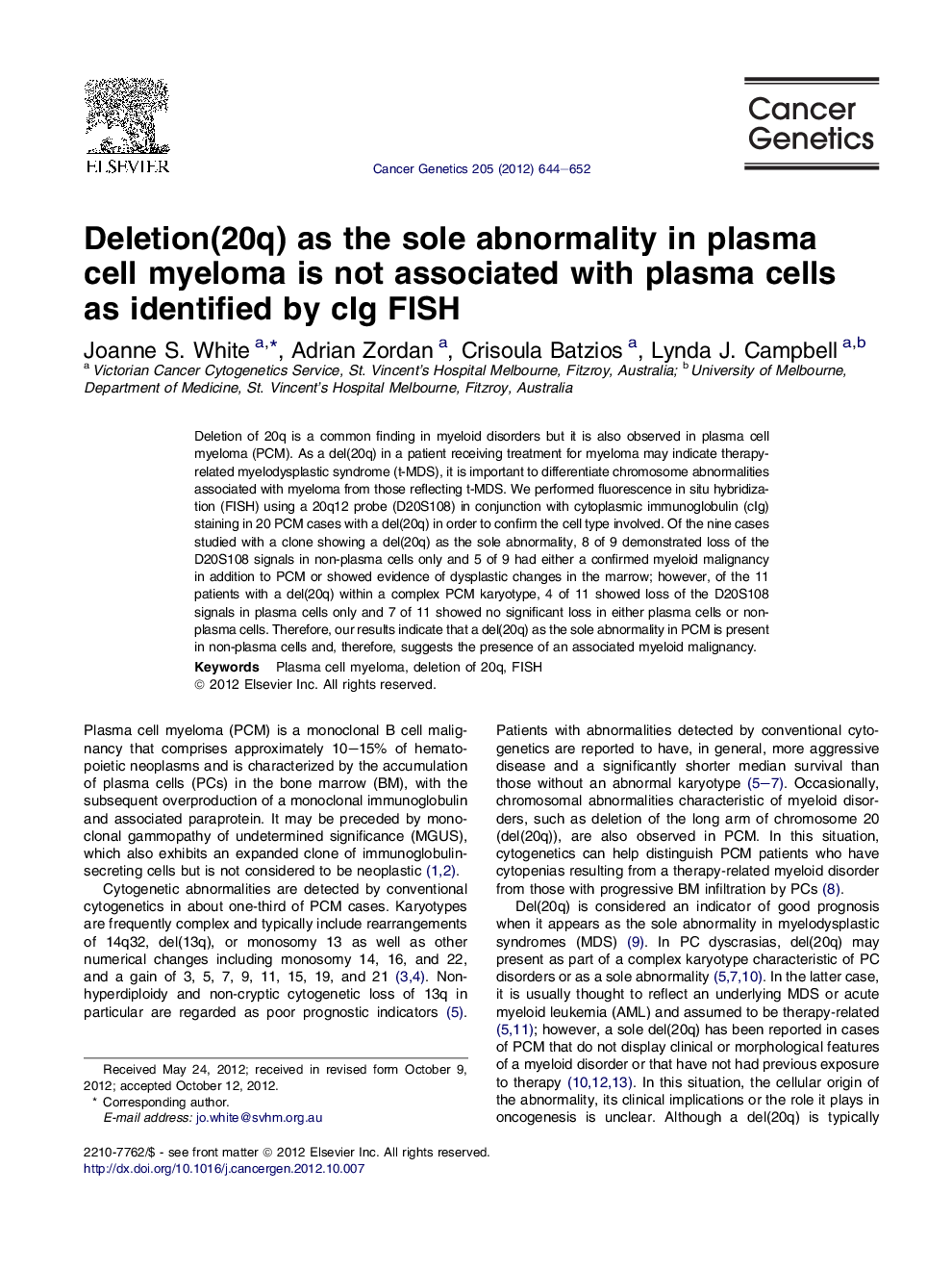| Article ID | Journal | Published Year | Pages | File Type |
|---|---|---|---|---|
| 2110198 | Cancer Genetics | 2012 | 9 Pages |
Deletion of 20q is a common finding in myeloid disorders but it is also observed in plasma cell myeloma (PCM). As a del(20q) in a patient receiving treatment for myeloma may indicate therapy-related myelodysplastic syndrome (t-MDS), it is important to differentiate chromosome abnormalities associated with myeloma from those reflecting t-MDS. We performed fluorescence in situ hybridization (FISH) using a 20q12 probe (D20S108) in conjunction with cytoplasmic immunoglobulin (cIg) staining in 20 PCM cases with a del(20q) in order to confirm the cell type involved. Of the nine cases studied with a clone showing a del(20q) as the sole abnormality, 8 of 9 demonstrated loss of the D20S108 signals in non-plasma cells only and 5 of 9 had either a confirmed myeloid malignancy in addition to PCM or showed evidence of dysplastic changes in the marrow; however, of the 11 patients with a del(20q) within a complex PCM karyotype, 4 of 11 showed loss of the D20S108 signals in plasma cells only and 7 of 11 showed no significant loss in either plasma cells or non-plasma cells. Therefore, our results indicate that a del(20q) as the sole abnormality in PCM is present in non-plasma cells and, therefore, suggests the presence of an associated myeloid malignancy.
